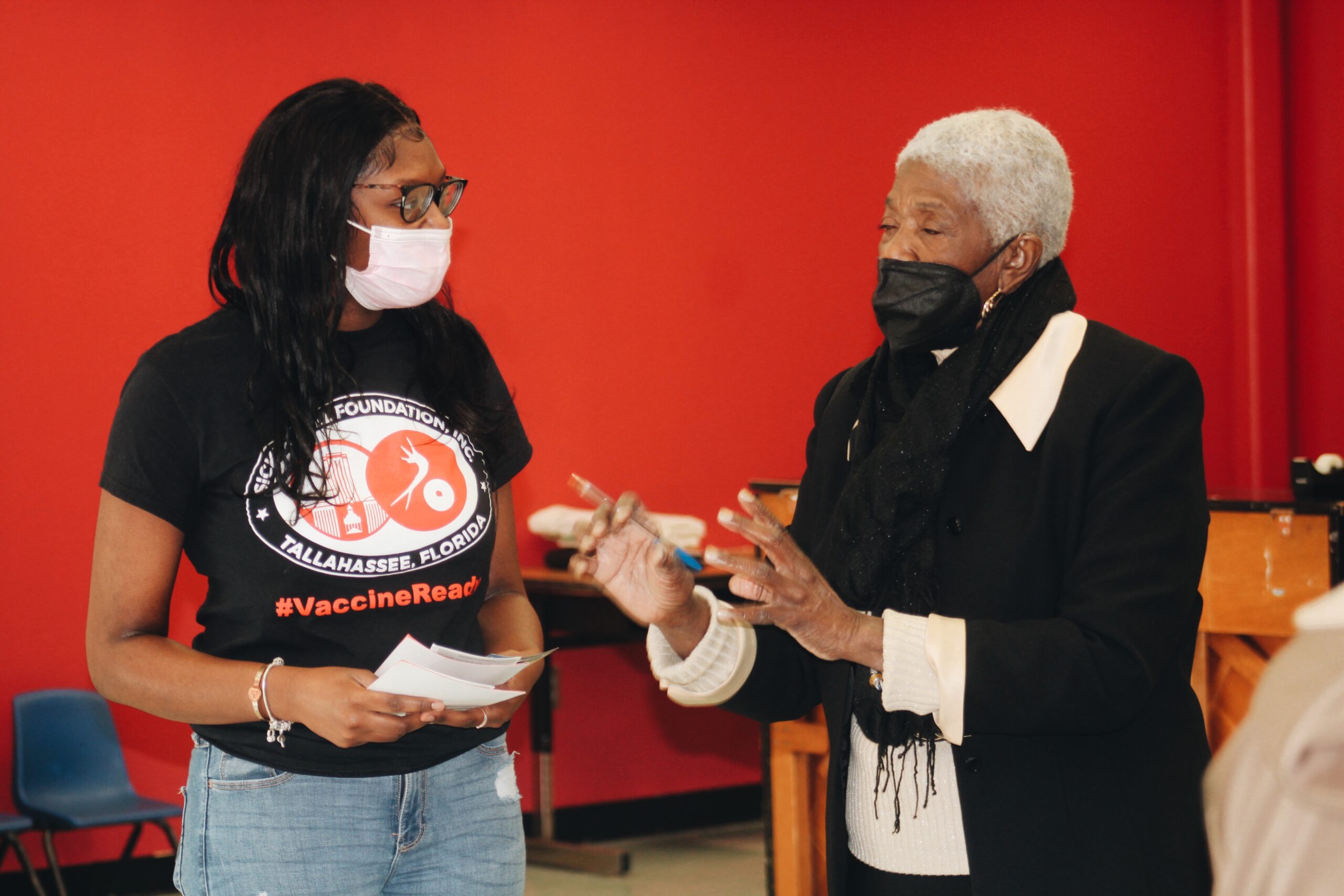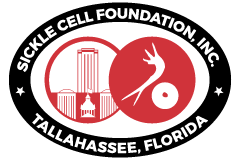
Services
Please contact the office of the Sickle Cell Foundation at 850-222-2355 for a personal interview.
We seek to make everyone aware of sickle cell anemia, its cause, and the impact on our clients, families and the entire community. To have everyone know the difference between sickle cell trait and sickle cell anemia and to teach our communities how the sickling gene is detected and who should have a sickle cell test.
We were concerned because so much of what the public heard and read about sickle cell conditions was inaccurate, misleading, and unduly alarming. There was very little information to help clients and families to understand sickle cell disease. Nothing was being done to motivate people of childbearing age (fifteen to forty-four) to voluntarily seek sickle cell testing. Influential people in our community, who touched the lives of patients, were not sufficiently knowledgeable about sickle cell conditions and the services that clients might need.
We began by telling the sickle cell story so that everyone would know about the way sickle cell anemia is inherited and how it affects clients. We ordered written and visual sickle cell educational materials about sickle cell conditions and made them available to the public and professionals. We took our educational materials into the community. Our information packets are mailed, distributed at health fairs, in libraries, community centers, schools and colleges, churches and other places where people gather. We used local newspapers, radio and television programs to help dispel myths about sickle cell disease and to tell the public about programs and services available at the Sickle Cell Foundation, Inc. We also have taken advantage of every opportunity to present the facts about sickle cell conditions to group audiences. We have talked to social clubs, neighborhood organizations, community services agency staff, health care and social services professionals, school personnel, students and parent/teacher groups. We continue to educate the community on the sickle cell facts.
We establish an environment in which clients are free to explore their feelings and personal problems related to sickle cell disease with others who have a unique understanding of the issues. To provide a forum in which clients can give and receive support from their peers.
Individuals with similar interests, concerns or problems can network, share information, coping mechanisms, and generate resources that contribute to the growth and success of the individual members and the group.
We established a peer support group called the “Defier’s Club” which meets the fourth Friday of each month at noon. This support group provides discussions about the way sickle cell anemia affects them, members share their feelings and experiences and give and receive information about mutual interests, concerns and problems. The scope of the discussion is determined by group members, rather than professional staff. When an issue warrants more attention, the group invites a representative from the relevant agency or organization to attend the meetings and address their concerns.
In order to identify a person of childbearing age who have the sickle cell trait and give them the chance to obtain comprehensive and accurate information that will enable them to make decisions about family planning that they believe are in their best interests, we offer free sickle cell screenings to anyone interested in learning about their hemoglobin status.
The vast majority of African Americans, aged twelve to forty-four, have never had a test for sickle cell disease because it is uncommon for routine physical examinations to include it. A quick, painless blood test is the only way to determine whether or not someone is a carrier of the trait and runs the risk of passing on the trait to their offspring, as sickle cell trait is not a disease and has no impact on one’s health. If African American couples are unaware that they have the sickle cell trait, they may become pregnant and give birth to children who have sickle cell anemia without having a chance to consider the possibility or prepare for caring for a child with a chronic illness.
Finding out if someone has SCT can be done with a quick blood test. Most hospitals or medical centers, SCD community-based organizations, and local health departments offer testing. Our organization uses screening with a small sample of blood taken from the finger (a “needle • prick”) and evaluated on the spot. There is no laboratory work involved in these screenings.
The screening can be finished in under five minutes and provides results immediately. Using a finger stick, a small amount of whole blood is used. In comparison to traditional central laboratory testing or sickle cell screening,
It eliminates the need to transport samples.
requires no specialized tools or extensive training
drastically reduces discomfort and waiting times for clients
We provide financial assistance with prescription medication for sickle cell related illnesses to clients who cannot afford it.
Sickle cell anemia is a devastating disease that requires lengthy hospital stays, as a result in many cases clients are often unable to remain employed. Most sickle cell adults are either uninsured and/or receive limited government assistance insurance (Medicaid, Medicare, SSI, or etc.). This means that clients are unable to pay for their prescription medications.
Because sickle cell patients frequently struggle to get to doctor’s appointments or the emergency room when painful episodes occur or after taking a lot of medication, we provide transportation for sickle cell-related doctors and emergency room visits for clients who have no other means of transportation. In order to help families with transportation, our organization coordinates with independent contractor drivers and vehicle companies, or by dispersing gas vouchers. We do not provide transportation assistance by using our employees as drivers or vehicles owned by our organization’s employees.
The Foundation provides limited financial assistance with the following utilities: utilities or gas, rent, food, gas mileage and children’s clothing. The client must have a financial need and meet the income eligibility criteria to qualify for assistanc
We provided free sickle cell screenings and counseling at convenient times and locations for interested persons. Today we still provide free testing and counseling at the Foundation.
Through contributions The Sickle Cell Foundation, Inc. provides children with sickle cell anemia with the opportunity to spend time away from their normal environment and in the company of children who do not have a chronic illness at a local and collaborating summer camp. Every year, the Sickle Cell Foundation, Inc. covers camp fees and transportation costs for children with sickle cell disease who want to attend summer camp. In order to help families send their kids to summer camps, our organization coordinates with independent contractor drivers and vehicle companies, or by dispersing gas vouchers. We do not provide transportation assistance by using our employees as drivers or vehicles owned by our organization’s employees.
When a child has a chronic condition like sickle cell anemia, their parents may overprotect them, preventing them from growing up with self-confidence and the ability to function independently. This can result in the child growing up to be a dependent adult, unable to take control of his or her life. Children who do not have a chronic disease have many opportunities to learn to function without parental supervision and to develop self-confidence. We believe that children with sickle cell anemia should have the same opportunities.
